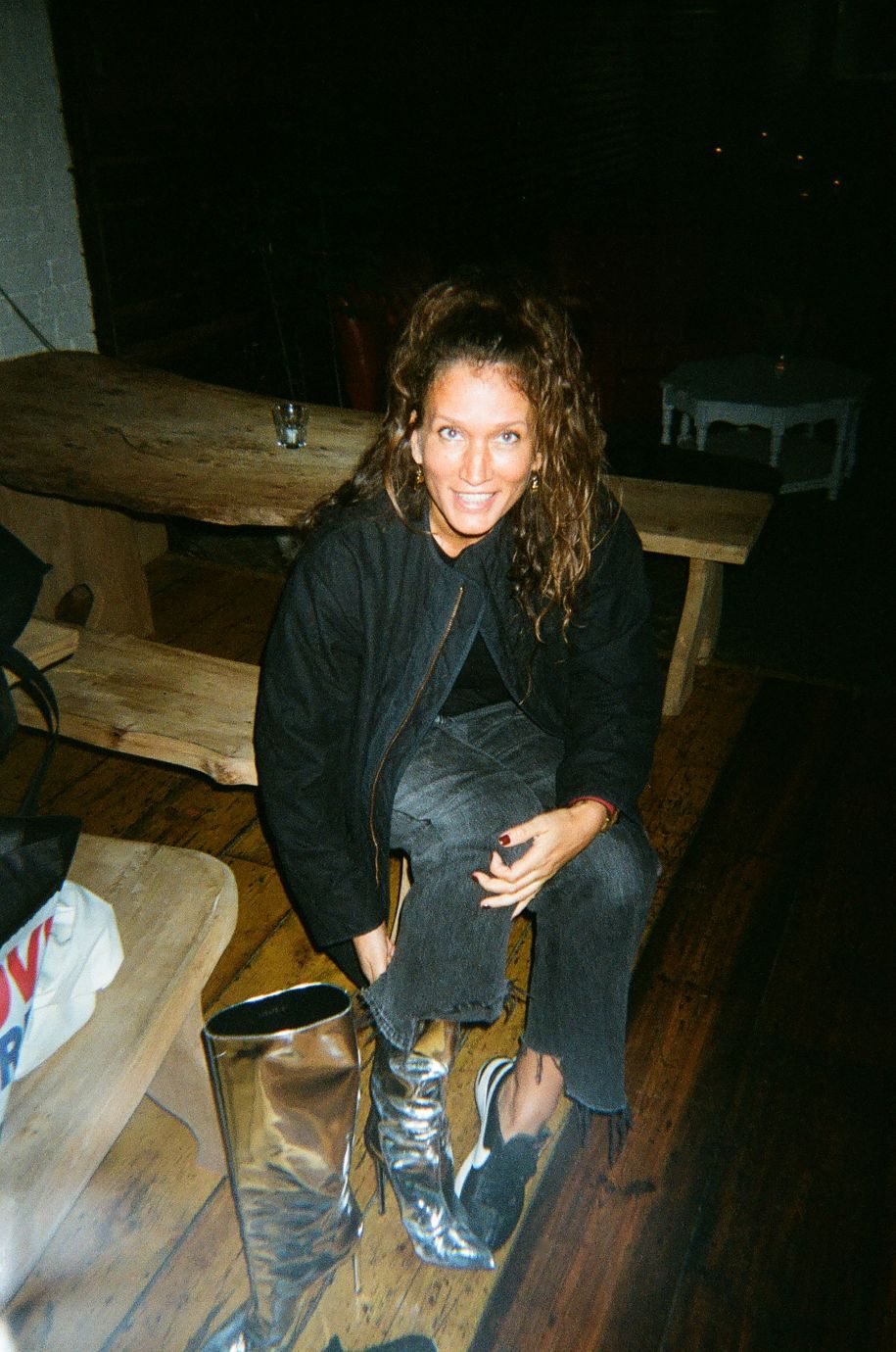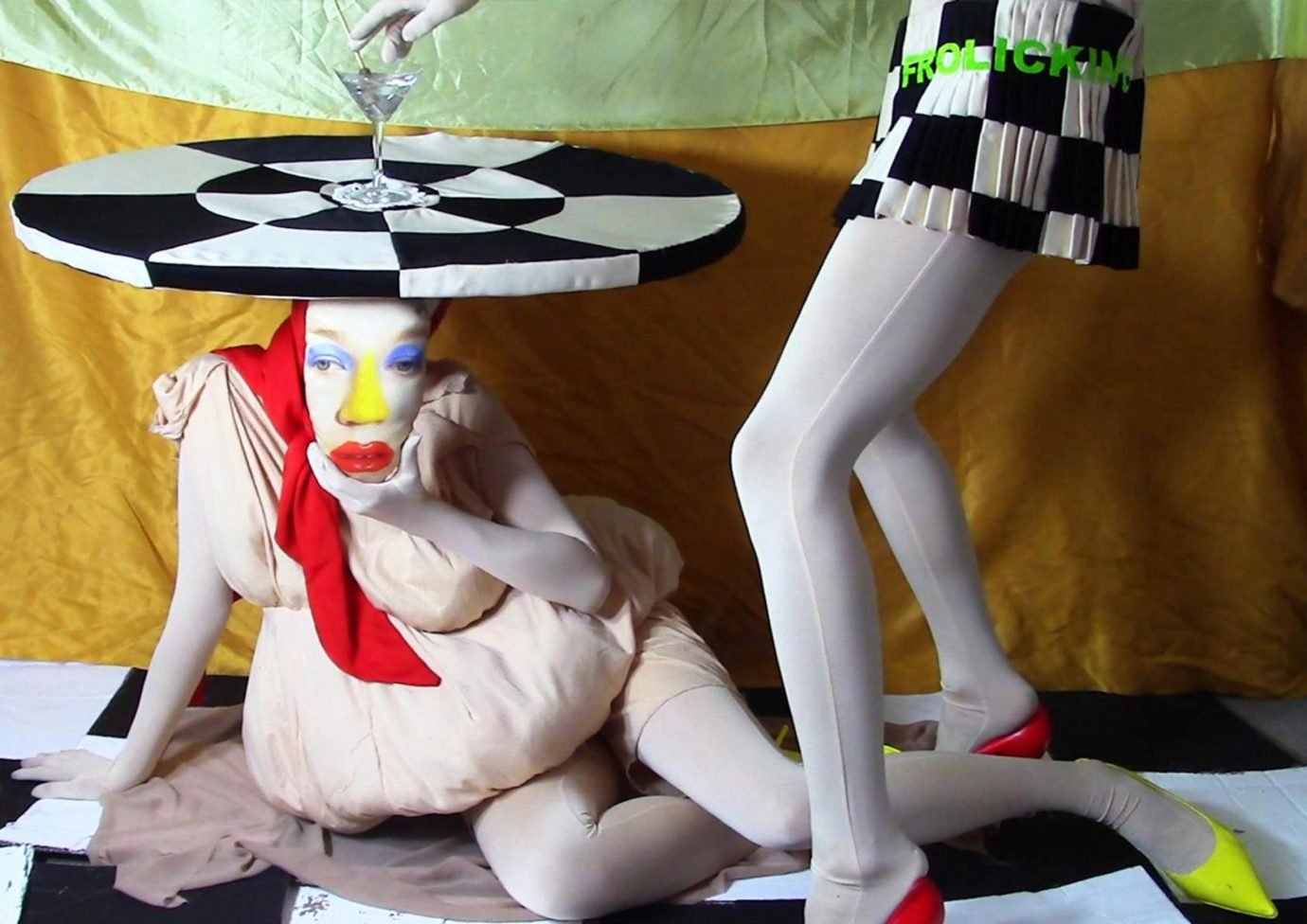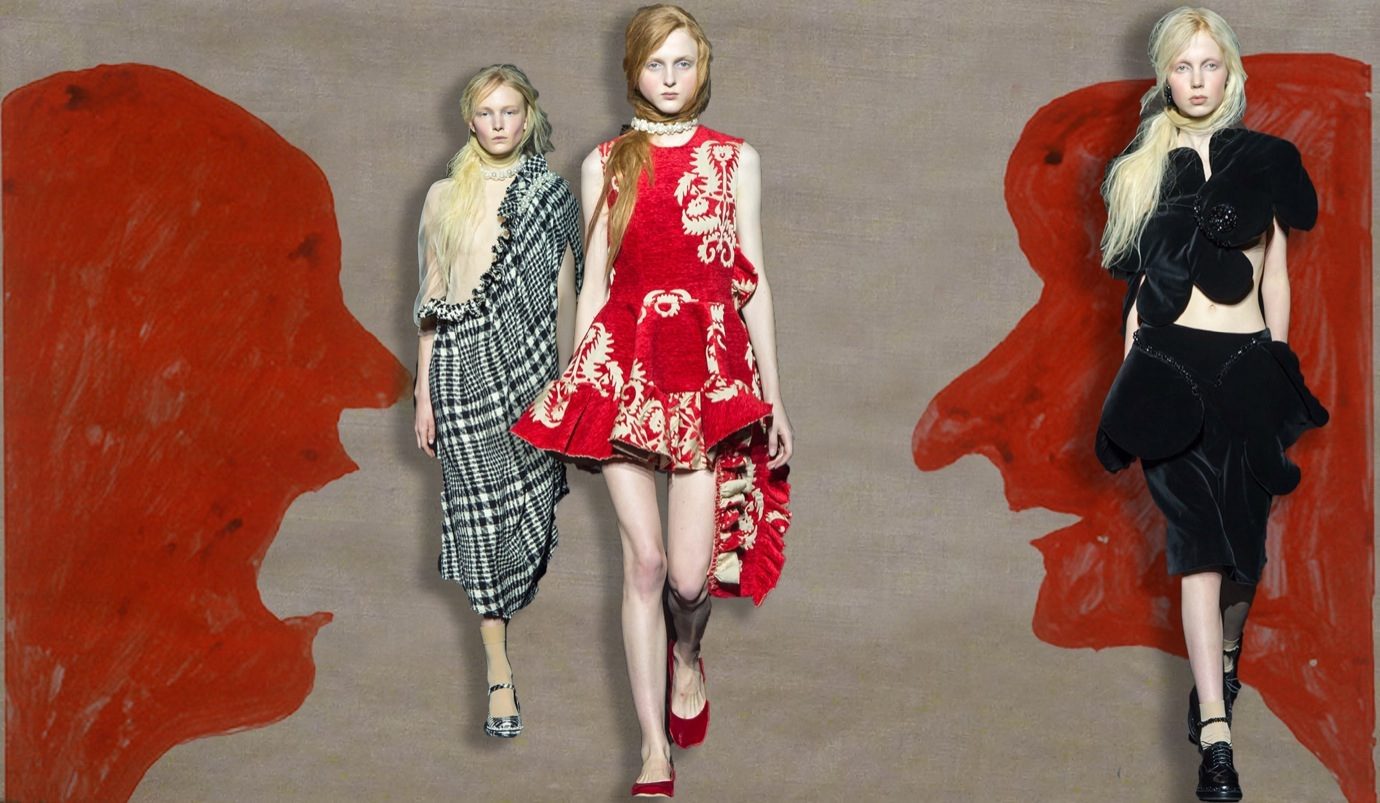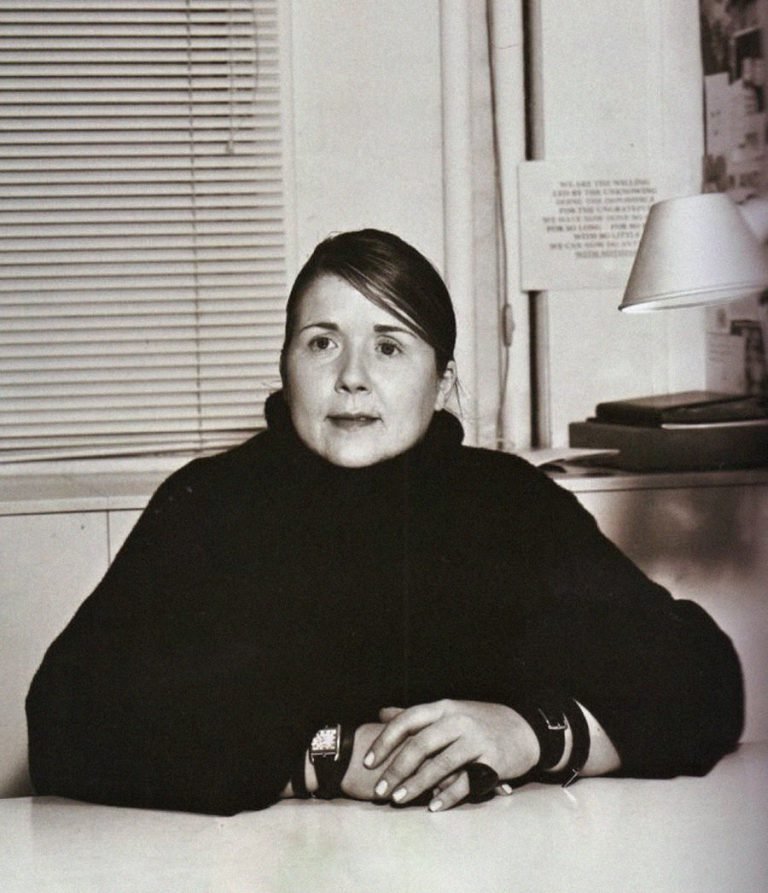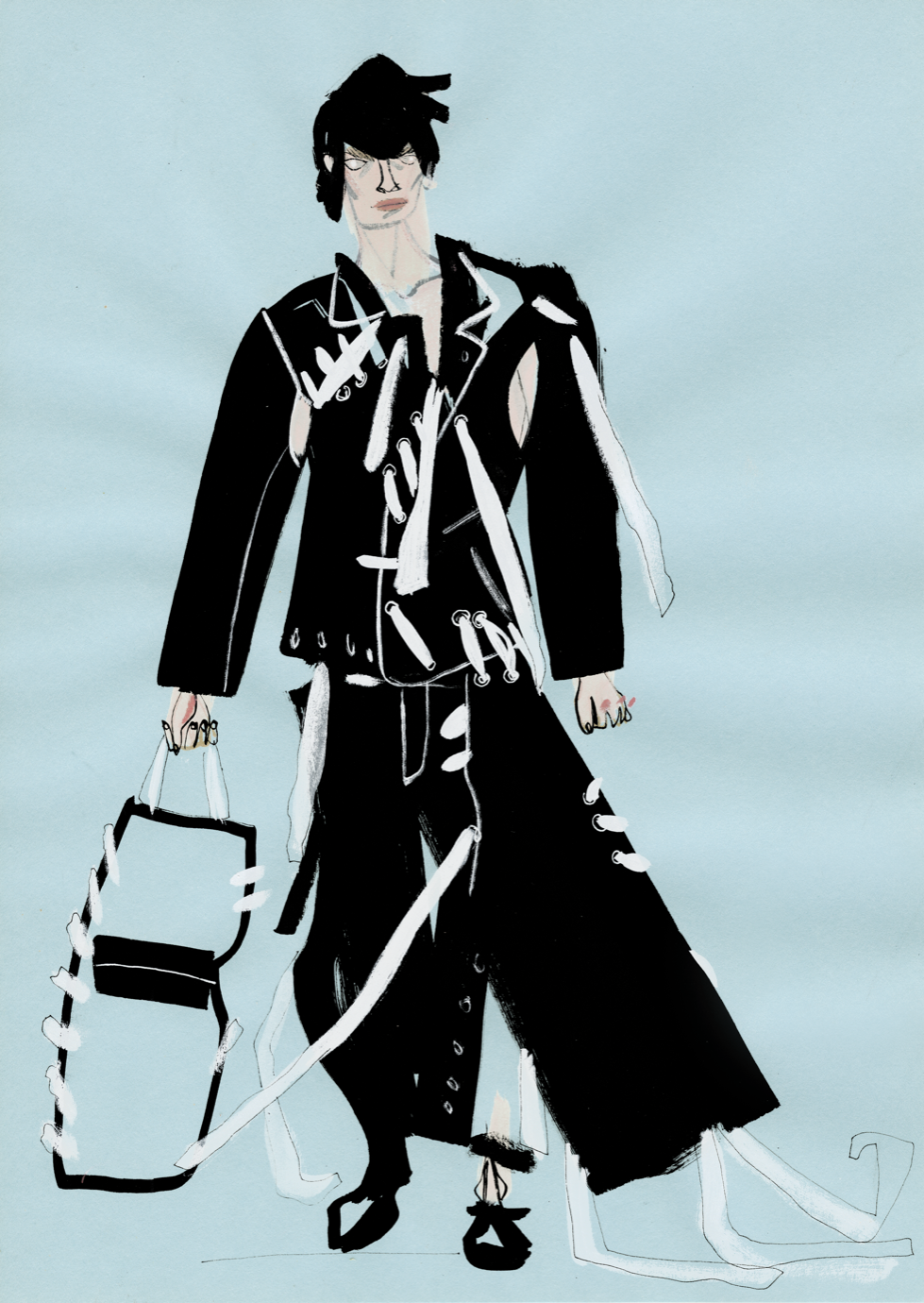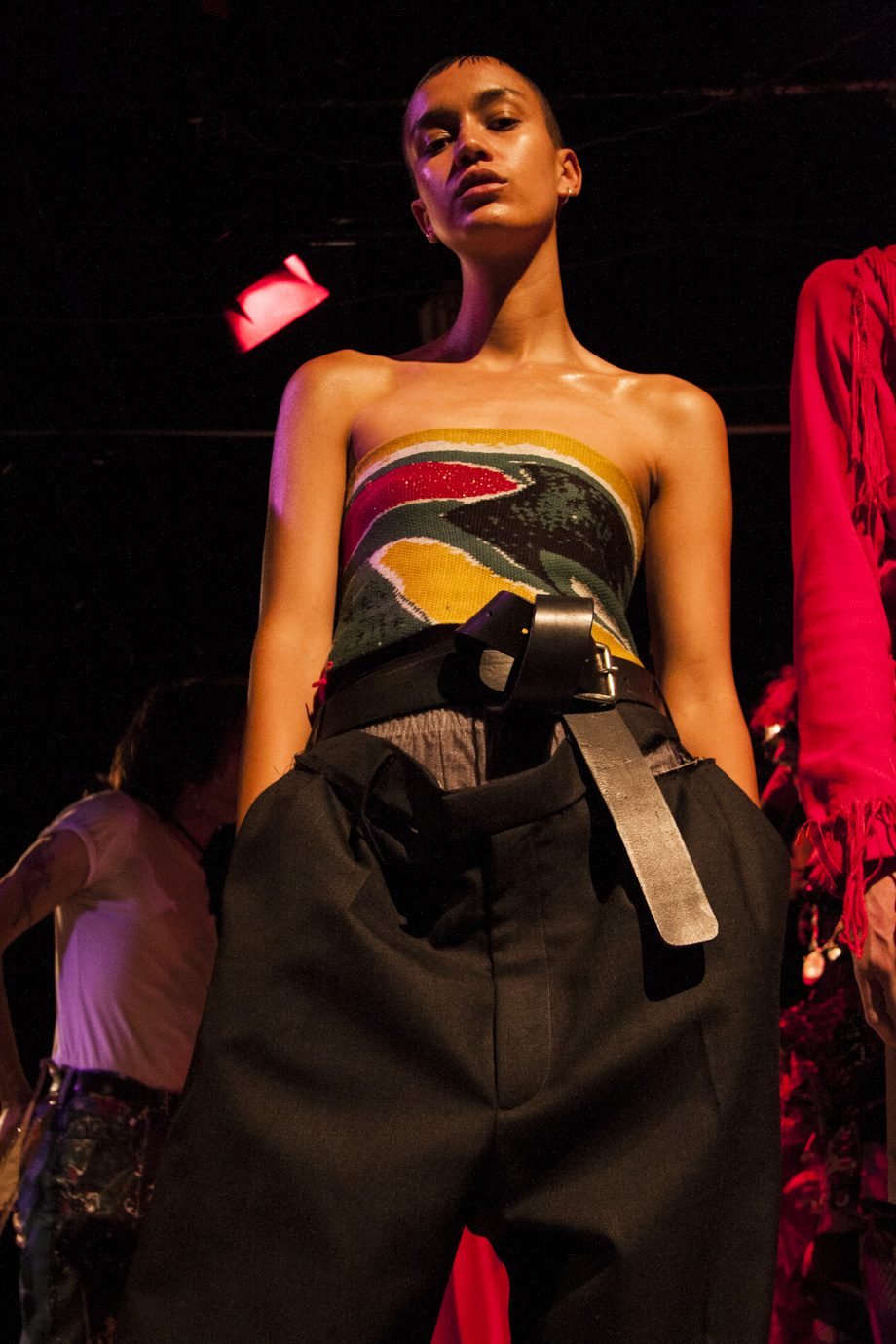Fashion East has become somewhat synonymous with the future of London fashion. Despite its guerilla origins, Fashion East has been a staple of the London Fashion Week schedule since Topshop began supporting it in 2003, three years after its launch. The initiative has nurtured, supported and showcased Simone Rocha, J.W. Anderson, Craig Green, Jonathan Saunders, Roksanda, Gosha Rubchinskiy and many more. As the director of Fashion East, Kennedy has well and truly helped put London on the fashion week map and was awarded an MBE in 2012 for her contribution to the fashion industry.
When she’s not up the cast-iron spiral stairs that lead to the Fashion East office on Brick Lane, Kennedy running all over London. Her diary is suitably jam-packed. She is editor-at-large of LOVE magazine, a member of the British Fashion Council’s NewGen menswear selection panel, curating content for Copenhagen International Fashion Fair (CIFF), consulting for high street brands and mother to her three-year-old daughter Rainbow. Sitting across the table, Kennedy looks effortlessly cool in an Aries top, Marques’Almeida trousers, adidas Spezials as she places a statement pair of tortoiseshell Céline sunglasses on the table after running from an impromptu site recce in the approach of London Fashion Week Men’s.
How would you describe what you do?
I run a philanthropic project that supports new talent. I know I get called a talent scout or “fashion’s fairy godmother” but that makes it seem like we are dishing out favours, which isn’t true. It’s more specific, we strive to help designers by sustaining a platform from which they can springboard themselves into their careers – whether that be building their own brand, being a creative who works across other brands and mediums or a portfolio builder. That’s not really anything I can control or worry about, I’m just happy if what we are doing feels relevant and strong. Fashion East is about giving embryonic designers advice and a push in the right direction.
“If we have our own agenda then that doesn’t feel right because it’s their show, it’s their business.”
You use the word ‘relevant’, how does Fashion East stay relevant?
By listening to the designers, they are the protagonists that we are supporting. If we have our own agenda then that doesn’t feel right because it’s their show, it’s their business, it’s their life and we are behind the scenes. I think also by being open to advice from our selection panel and other industry heavyweights. Sometimes a throw away comment from them will sit with me and I will ponder on it, I do a lot of thinking about what jars and what feels right, what’s doable and what we are wasting time on.
How has Fashion East evolved?
In the beginning I just aimed to put on a show and help my friends and that was really from my background of throwing parties in Italy and working in art galleries. It was those two things coming together. It was a lot less about making sure that they have a line sheet with correct pricing and no typos and going off to Paris. I didn’t do half of the things that get done now. The designers are very lucky to have someone like Tash [Natasha Booth] our project manager who is incredibly conscientious making sure all of that comes together.
Do you think it has become a lot more formulaic for designers?
No, there isn’t a formula really, I think they just have more options. It’s always sort of changing because of the way we work, for example with buyers on the panel, feeding back into our understanding. Sometimes even just catch-ups with people who aren’t on our panel, like Stavros [Karelis] from MACHINE-A, can be such an eye opener. We are always learning, there is always so much more to learn, we just try to pass on that knowledge to the designers and that empowers them. If they want to follow up and act on the advice it’s great, but if it only makes sense and sinks in a year later that’s also fine.
Why did you set up Fashion East’s menswear counterpart MAN?
There was great talent and no platform. It was very spontaneous, I never really got approval from anyone, I just asked Topman because I was in seeing Topshop and the menswear office is next door. In 2005 designers weren’t even approaching us because we just weren’t doing menswear. I just knew some, Kim Jones and Christoffer Lundman were catalytic, kind of like Hazel and Pablo’s menswear counterparts. It started strong and all began falling into place within the first year. Meadham Kirchhoff were actually menswear to start off with, Christopher Shannon was graduating and I loved his work and Martine Rose I met fairly shortly after. I remember feeling a lot of excitement at that time.
Do you think gendered fashion weeks are important?
No, I have always loved it when I would see womenswear at menswear shows, because traditionally it was so frowned upon. I was delighted to see it all get mixed up and more and more so over time. I’d like to see them merge together where applicable, why not?
London has some brilliant menswear brands at the moment; all those people who aren’t even anything to do with fashion week and are just killing it, like Palace. I could see menswear being folded into womenswear and I think Fashion East is in a really good position if they do merge, it wouldn’t be a difficult adaptation for us at all.
What is your most memorable season or your favourite moment?
There have been a few! A huge one was Gareth Pugh’s SS06 show with the light up outfit at the end. It was in the Electric Ballroom in Camden, which was a club I used to go to when I was a little goth, so that was a super exciting moment for me just on a personal level, to be back in my home stomping ground. Also working with people like Eugene Souleiman on hair, it just felt epic. That show was one of the ones where the audience was screaming. It really had a sense of something new coming through. I guess the last season MAN AW17 went really well. Charles [Jeffrey] really felt fantastic.
Those have been real epic screamers and then there have been just quieter ones where I’ve had to hold my breath a few times. At Marios Schwab’s it’s just been so intense, a bit like a Grace [Wales Bonner] show. They have that focus and intention, the audience goes really quiet and there’s that overwhelming feeling of being in that moment and watching something very beautiful come past you.
There have also been teary moments, or like, oh my god, I am just going to start dancing because the music is so good. I had that at a Richard Nicoll show but that was actually after Fashion East, my friend had to physically hold me down and restrain me [laughs]. It was so exciting, I felt like one of my kids just graduated. Watching their first standalone show, it’s that feeling of their wings working, they are flying and they’ve flown the nest!
“I can’t lie, instinct and personal taste are pretty important factors, but I do have to take distance from it, it is not my project, it is our project.”
What do you look for in a designer and how important are instinct and personal taste in the decision?
We don’t really have any restrictions other than that they should be a brand based in the UK. There aren’t a lot of criteria other than: you must be good, and even if you’re not good yet there must be promise!
I can’t lie, instinct and personal taste are pretty important factors, but I do have to take distance from it, it is not my project, it is our project. There is usually something that feels right for the time or sometimes it’s about whether the designer will fit with the other designers; there are so many factors. We don’t always get it right, but usually it can be a good experience for them to have a dud season, because then they grow from that and come back stronger. Yeah, it’s pretty much instinct. I think because I’ve done this so long I can kind of tell if something is going to be a fuckup and we can style it out even if it isn’t going to plan. I’m kind of cowboy like that and quite reckless.
Why do you think it doesn’t work out sometimes?
Anything can happen, there are so many elements in play. Sometimes a venue doesn’t work out as planned or someone is difficult to work with. Plus the designers are still learning and making their own decisions, we don’t control them. Of course, we are always at the end of a season going – damn, I wished we had done that better but it would be scary if we didn’t.
“Sometimes kids coming out of college have been forced into doing things in a certain way.”
Do you think Fashion East is a transition period for most designers?
Yes, and I think sometimes kids coming out of college have been forced into doing things in a certain way and they’re almost getting it out of their system, in order to be the thing that they wanted to be. An opportunity to get all of that stuff out of the way so they can start picking up the pieces and really find their feet.
Do you think design freedom still exists or do designers have to adjust their visions to a market to be successful?
Like can you have your cake and eat it? I think you can but you just shouldn’t expect to get everything from one source. Don’t expect your business to be able to do that and make money. But if you express yourself completely through your creative outputs, you can then get other work on the back of it, which then goes back into your pot. I think there are really clever ways of doing both. This idea of a monolithic business that is the be all or end all feels a bit defunct to me.
Designers have got to be realistic. They need to think about what they can feasibly manage to produce, rather than try to offer a full ready-to-wear brand. It’s madness because obviously they have strengths and weaknesses – it’s best to always play to your strengths. That’s what we need to try and get through their heads. You might end up doing a show but then selling jersey or knitwear, or being asked to style something, or getting a consultancy gig for another brand. Designers need to be versatile, creative and enjoy what they’re doing and not be burdened down by attempting to keep up appearances.
“I get this terrible feeling sometimes that I’m putting them on this big stage when they aren’t ready.”
What do you think the biggest challenge is of working with young designers?
Increasingly designers are coming out of college without having done a Masters because of the cost, so they are not fully formed and they are still embryonic. I get this terrible feeling sometimes that I’m putting them on this big stage when they aren’t ready. I do worry about that. But sometimes those people you thought weren’t ready can actually surprise you. They often turn around and say that it was so helpful and got them where they needed to get next.
In an ideal world they would have all done a really hard core MA – like kids who came through Louise Wilson were just of a really specific ilk, i.e. incredible. I feel like everyone benefitted from a hard core MA that broke them down and remade them, they would each know their own voice and who they were. Not having much industry experience can be tricky, because working in the industry for a while can really open a designer’s eyes. Lack of MA training, industry experience and funds – those three things are the challenges.
Do you think there is an enormous pressure to be successful younger now?
Yes, when we first started doing Fashion East it didn’t feel like there was much existing excitement for the young kids, it was just assumed that they would get jobs and only a few were doing their own thing. Maybe the appetite in general has grown with people constantly looking for the next thing. Fashion has always been looking for the next thing but it was more about a new trend coming through from the existing designers, whereas now it’s more and more designers and it’s just faster and faster. I’m sure the kids do feel the pressure to set up straight away. Why not go get a job in Milan or Paris for a few years first? But I don’t know what I would do if I was them.
Do you think Instagram is an important tool, for yourself and the designers?
It clearly is, but I feel it comes at a cost. Nothing is free and the price you have to pay is the social anxiety that comes with social media. I think people’s lives can become dictated by it, but you know that’s me being negative, because there’s also immense freedom and creativity. I just think it’s a shame when people are on their phones emailing each other while they’re sitting in the pub. I’ve got happy memories of how we used to all just bumble along.
What qualities do the household names which have passed through Fashion East share?
With Kim Jones I just knew straight away that Kim was going to be Kim. Louis Vuitton was his dream, he’s so right for it and he has proved himself to be so good; that’s not to say he wasn’t good at Dunhill but he’s really found his place. He has a love for fashion and understanding and knowledge of it. He’s got that rhythm and is constantly playing homage to his heroes and it’s such a beautiful thing that he does. I don’t really know if I can compare him to J Dubs [J.W. Anderson]. I guess the focus and ambition, they also share that with Jonathan Saunders. There was always a steely ambition. I feel Grace has those same qualities – that focus and commitment.
With Simone and Roksanda it just feels like it’s in their blood. That’s not to say they aren’t astute businesswomen, they obviously are running big ships. It felt very natural for those girls, maybe because they are making women’s clothes and wearing them themselves – women designing for women.
I feel that the designers are becoming increasingly prolific. To be successful it takes a real love and I guess if you’re buzzing off it then that gives you the energy to propel you forward.
“I think brands that start by focusing on one product are so clever.”
What advice would you give to someone wanting to start their own brand?
Be really sure of what you want your brand to be, it’s much better to know in advance than make it up as you go along. You can make it up a bit and that’s fine; a lot of kids that come through Fashion East do that, but it’s possibly better that you do a whole ton of research and thinking. Think about who are your customers and what are you prepared to make?
I think brands that start by focusing on one product are so clever, like Shrimps, or Molly Goddard with tulle and Marques’Almeida with denim. I think it is really smart to start with one thing and do it really well. If you’ve gained some industry experience and appreciate how difficult production is, then you might not be into the idea of doing full ready-to-wear because it’s a nightmare. It’s hard enough doing one product category.
Teamwork is also extremely important. If you can gather people around you that’s half the battle. Really think about what that business would look like, go out, work and learn from other people while they’re making their mistakes. To see how hard it really is out there.
What next for Fashion East?
I’m excited about getting Fashion East to the next level or it’s next evolution and figuring out what that’s going to be. I know that all sounds quite grandiose but I’m excited things are moving. The next evolution will be partnering with people who can take things forward for the designers, nothing too radical. We’re still going to be East End based and still do fashion shows but I think there is a lot of unexploited project ideas we just don’t have time to do. Specifically, if we want to offer studio spaces as part of the programme.
There are so many things that I think designers need, which in an ideal world should – without sounding big headed – be fairly easy to do with our experience and contacts, but it’s about having the time and someone to strategise it for us and bring in investment. Not many people realise it, but our team is really small; just myself, Tash, Raph [Raphaelle Moore] and an intern. It would be nice if we could flex a bit more in-house, although people sometimes say expansion is the worst thing. It’s a funny one because sometimes it is good to stay small… I don’t know the answer.
What would you be doing if you weren’t doing Fashion East?
Probably living in Mexico, being a mechanic. I know that sounds silly but I really love big cars and stuff even though I don’t actually know how they work.
What is it about monster trucks?
I don’t know, maybe it’s the speed, the noises and escapism of monster trucks and motorbikes – plus they’re totally lols. As a kid I grew up obsessing about wrestling and it’s the same stupidity isn’t it? Doing the dropout thing is quite me and having lived in a caravan with no running water and no electricity I know it’s possible, I quite like being feral and on the outskirts.

